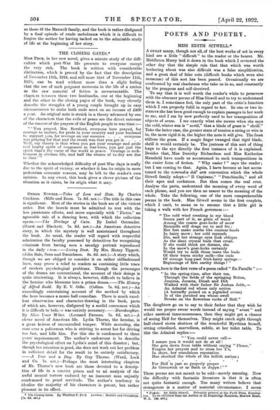THE CLOSING GATES.* Miss Pecos, in her new novel, gives
a minute study of the diffi- culties which post-War life presents to everyone except the very rich. The book is written with considerable 'distinction, which is proved by the fact that the description of November 11th, 1918, and still more that of November 11th, 1920, can be read without more than a slight feeling that the use of such poignant moments in the life of a nation as the raw material of fiction is unwarrantable. The chapters between these two landmarks, one at tho beginning and the other in the closing pages of the book, very cleverly describe the struggles of a young couple brought up in easy circumstances to make both ends meet on an income of £400 a year. An original note is struck in a theory advanced by one of the characters that the evils of peace are the direct outcome of the success of the prayers of the English people in war-time
You prayed, Mrs. Hertford, everyone hero prayed, for courage to endure, for pride in your country and your husband to support 3ou, for revenge on our enemies . . . everyone was praying for that and the result was that you got it. . . . Well, my theory is that when you got your courage and pride and hearty spirit of vengeance in war-time, you got just the spirit that's the curse of the world in peace. Courage is reck- lessness in civilian life, and half the crimes of to-day are due to that.' " Whether the acknowledged difficulty of post-War days is really due to the spirit of victory, or whether it has its origin in more pedestrian economic reasons, may be left to the reader's own opinion. In any event, this book gives a clever picture of the
situation as it exists, be its origin what it may.


































 Previous page
Previous page